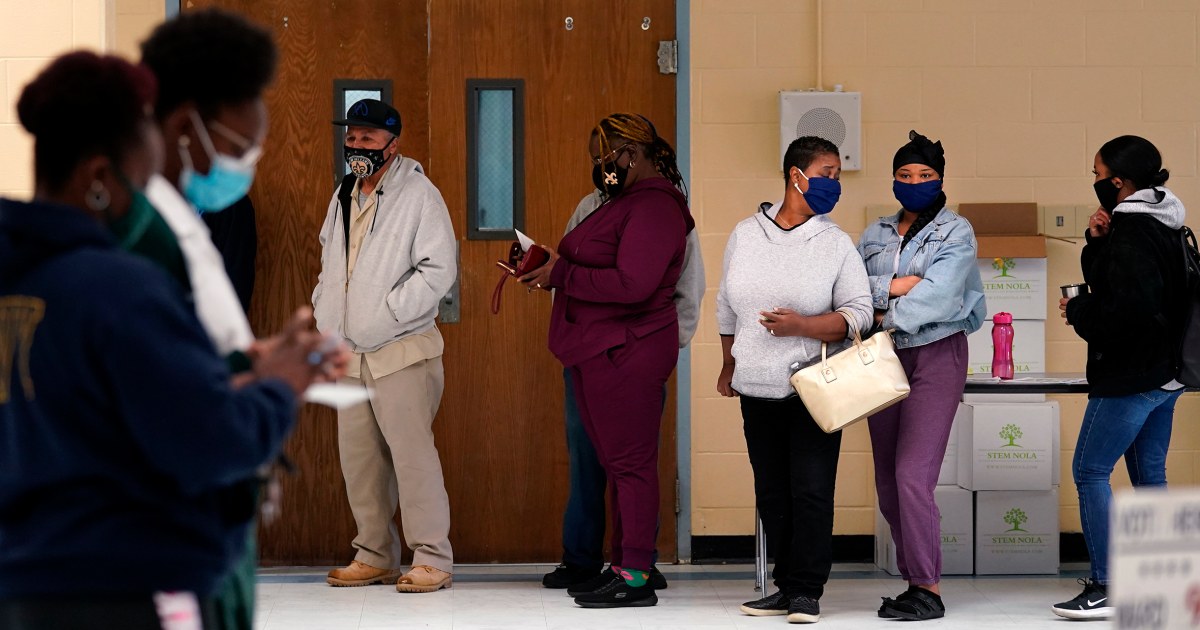Ahead of Tuesday’s midterm elections, Republicans in many parts of the country have worked to limit access to the ballot box for many individuals. But in Louisiana, they’ve succeeded in erasing an entire congressional district, one that not surprisingly could have gone to the Democrats. This egregious disenfranchisement — which hinges on an odious redefining of Black identity to narrow the pool of Black voters — has flown too far under the radar even as control of the U.S. House hangs in the balance.
The Louisiana move was made possible through the earlier erosion of the Voting Rights Act. Originally under the act, states with a history of discrimination toward minority voters — say Louisiana — had to pre-clear any changes to their congressional district maps with the federal government. But since 2013, when the conservatives on the Supreme Court invalidated that part of the law, the state legislatures that draw up these districts have had freer hands to marginalize certain voters.
Louisiana Republicans are trying to minimize the number of Black voters who count as, well, Black.
However, these legislators are still governed by a provision of the Voting Rights Act that requires minority opportunity districts (congressional districts in which at least half of the voting age population is a minority group). In practice, opportunity districts ensure that Black and other minority voters — who may not otherwise constitute a majority in any one district even as they make up a significant part of the state population — have a voice in Congress.
To overcome this remaining hurdle, Louisiana Republicans are trying to minimize the number of Black voters who count as, well, Black.
After the redistricting process following the 2020 census, the new population figures showed that the Black population had increased while the white population had decreased to the extent that a second majority-minority district was needed in the six-district state — but the GOP-dominated Legislature didn’t create one. Democratic Gov. John Bel Edwards vetoed the Legislature’s congressional maps for lacking a second minority-majority district, only to have Republicans in the Statehouse override the veto and enact them anyway.
So the NAACP and others took the Louisiana Legislature to court. The court ruled in their favor in June, at which point the state was ordered to draw up the new district in time for the general election on Nov. 8. Instead of complying, Louisiana’s Republican Secretary of State Kyle Ardoin launched a Supreme Court challenge based on legal reasoning that evokes the era of Jim Crow and blood purity tests. The conservatives on the high court accepted the case and put a hold on implementing a second majority-minority district while it considers the case later this term, effectively robbing Black Louisianans of their full representation in the House.
As troubling as this individual outcome is, the broader implications of the legal argument it’s based on are even more alarming. Louisiana is claiming that only Black Americans who choose “Black” or “Black and white” on census forms should be considered Black for the purposes of drawing racially inclusive congressional districts.
They claim that those who identify as multiracial — say, Black and Latino or Black and Asian — were wrongly used to bolster the calculations for Black minority opportunity zones. Currently, Americans are free to report themselves as one or multiple races in the census conducted every 10 years; the census itself doesn’t determine which race a multiracial individual identifies as. The Voting Rights Act, meanwhile, requires remedies in cases where minority residents vote as a cohesive group, rather than simply being a large multiracial population.
Share your story or advertise with us: Whatsapp: +2347068606071 Email: info@newspotng.com

















